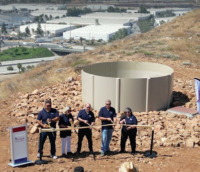Fats, oils, and greases (FOG) are becoming major environmental and public health problems in cities like Jurupa Valley and Eastvale. FOG is found in everyday food products such as; meat fats, lard, cooking oil, shortening, butter/margarine, baking goods, sauces, and dairy products.
When cooking oil and other fats are discarded into the kitchen sink, they harden inside sewer pipes leading to blockages. Over time, FOG accumulates clogs the pipes that lead to the sewer main. When wastewater cannot make its way through the sewer pipes, it overflows into our homes, streets, lawns, and storm drains. So, let’s be good neighbors and help keep FOG out of the drain.
Here are some myths about FOG’s
Myth: You can wash grease with dish soap making it ok to pour down the drain.
Fact: Even though soap breaks up grease, it loses its effectiveness downstream, and it allows grease to solidify on pipe walls.
Myth: Hot water will help grease float in the sewer pipe.
Fact: Running hot water will NOT help grease float nor will it break it down because the water will eventually cool as it flows, and the grease will become solid again.
With 379 miles of sewer main lines to maintain, we need your help to properly dispose of FOG
- Pour liquid oils and grease at room temperature into heat resisting containers such as glass jars. Once full, seal it and throw it away with your regular trash.
- Scrape fats, grease, and food from plates and cooking utensils into the trash can before washing them or placing them in your dishwasher.
- Stop by the JCSD main office and pick up your free fat trapper. The small plastic container is airtight and can sit on the kitchen counter. When the disposable bag inside is full, simply seal it and put it in the trash.



